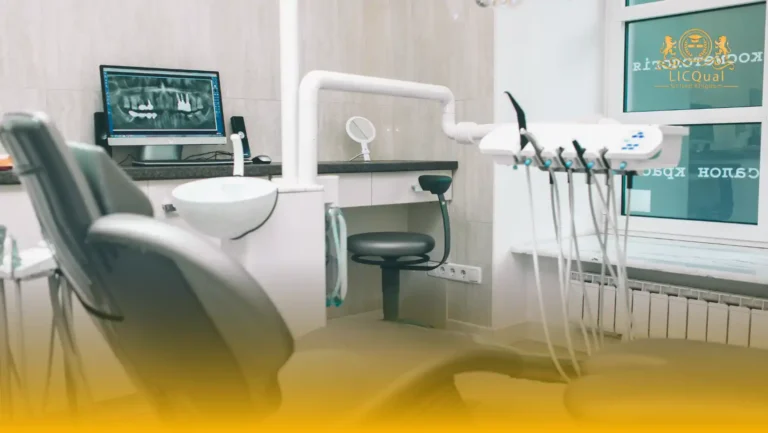The LICQual Level 3 Certificate in Emergency Medicine (Cert EM) is a specialised qualification designed for healthcare professionals who wish to enhance their expertise in urgent and critical care. This course is ideal for learners seeking to advance their career prospects, expand their clinical knowledge, and strengthen their Continuing Professional Development (CPD) portfolio. It provides learners with a thorough understanding of emergency medicine principles, including patient assessment, acute care interventions, trauma management, and effective decision-making in high-pressure clinical environments.
This qualification is specifically intended for experienced healthcare professionals rather than beginners. It is particularly suitable for nurses, paramedics, clinical practitioners, and allied health professionals who aim to develop advanced skills in emergency medicine. Learners will gain practical knowledge and evidence-based skills to assess, manage, and prioritise patients in emergency situations, while building confidence to respond effectively in critical care scenarios.
Centres delivering the LICQual Level 3 Certificate in Emergency Medicine must meet stringent quality standards. This includes employing competent and qualified staff, providing all necessary learning materials and resources, and ensuring access to appropriate clinical and simulation facilities for practical training. By combining expert instruction with structured, hands-on learning opportunities, centres create a supportive environment that fosters learner success and professional growth.
Whether your goal is to specialise in emergency medicine, improve patient outcomes, or strengthen your CPD profile, the LICQual Level 3 Certificate in Emergency Medicine offers a structured, practical pathway to achieving your professional and career objectives in urgent and critical care.
Course Overview
Qualification Title
LICQual Level 3 Certificate in Emergency Medicine (Cert EM)
Total Units
6
Total Credits
24
GLH
120
Qualification #
LICQ2200833
Qualification Specification
To enroll in the LICQual Level 3 Certificate in Emergency Medicine (Cert EM) , applicants must meet the following criteria:
|
Qualification# |
Unit Title |
Credits |
GLH |
|---|---|---|---|
|
LICQ2200833-1 |
Introduction to Emergency Medicine |
4 |
20 |
|
LICQ2200833-2 |
Anatomy, Physiology, and Pathophysiology in Emergency Care |
4 |
20 |
|
LICQ2200833-3 |
Patient Assessment and Clinical Decision Making |
4 |
20 |
|
LICQ2200833-4 |
Trauma and Acute Medical Emergencies |
4 |
20 |
|
LICQ2200833-5 |
Emergency Interventions and Procedures |
4 |
20 |
|
LICQ2200833-6 |
Professional Practice, Communication, and Ethical Care in Emergency Medicine |
4 |
20 |
By the end of this course, learners will be able to:
Unit 1: Introduction to Emergency Medicine
By the end of this unit, learners will be able to:
- Understand the scope and role of emergency medicine in healthcare delivery.
- Explain historical developments and contemporary practices in urgent and critical care.
- Recognise the responsibilities of healthcare professionals in emergency care settings.
- Appreciate the importance of multidisciplinary teamwork in improving patient outcomes in emergencies.
Unit 2: Anatomy, Physiology, and Pathophysiology in Emergency Care
By the end of this unit, learners will be able to:
- Demonstrate knowledge of key human body systems relevant to emergency medicine.
- Identify physiological and pathological changes in patients with acute and critical conditions.
- Apply anatomical and physiological understanding to support effective clinical assessment.
- Recognise indicators of patient deterioration to ensure timely intervention and treatment.
Unit 3: Patient Assessment and Clinical Decision Making
By the end of this unit, learners will be able to:
- Conduct rapid and systematic patient assessments in emergency situations.
- Apply clinical reasoning and decision-making skills to prioritise patient care.
- Identify signs and symptoms of critical conditions to support accurate diagnosis and intervention.
- Implement assessment findings to develop effective treatment and management plans.
Unit 4: Trauma and Acute Medical Emergencies
By the end of this unit, learners will be able to:
- Understand the management of trauma and acute medical emergencies, including cardiac, respiratory, and neurological conditions.
- Apply risk assessment and stabilisation techniques for critically ill patients.
- Recognise signs of life-threatening conditions and implement appropriate emergency interventions.
- Demonstrate knowledge of evidence-based practices in managing acute medical scenarios.
Unit 5: Emergency Interventions and Procedures
By the end of this unit, learners will be able to:
- Perform practical emergency interventions safely and effectively.
- Demonstrate correct use of emergency equipment, medications, and life-saving procedures.
- Apply guidelines and protocols to manage patients in critical care and high-pressure situations.
- Evaluate intervention outcomes to support continuous improvement in emergency care.
Unit 6: Professional Practice, Communication, and Ethical Care in Emergency Medicine
By the end of this unit, learners will be able to:
- Demonstrate effective communication and interpersonal skills with patients, families, and healthcare teams.
- Apply ethical principles, confidentiality, and professional standards in emergency care settings.
- Deliver patient-centred care, ensuring safety, dignity, and cultural sensitivity.
- Understand the importance of reflective practice and ongoing professional development in emergency medicine.
The LICQual Level 3 Certificate in Emergency Medicine (Cert EM) is designed for healthcare professionals, students, and practitioners who want to specialize in urgent and critical care. This emergency medicine Level 3 certification is ideal for those seeking to enhance their clinical expertise, improve patient outcomes, and advance their careers in hospitals, emergency departments, and international healthcare institutions. Whether you are a doctor, nurse, paramedic, or healthcare assistant, this emergency medicine diploma course Level 3 provides the skills and recognition you need to excel in high-pressure environments.
1. Medical Students and Graduates
- Builds a strong foundation in emergency medicine and acute care.
- Complements existing medical studies with specialized emergency knowledge.
- Enhances academic profile with an internationally recognized qualification.
- Prepares learners for advanced emergency medicine training and higher-level diplomas.
- Provides practical insights into trauma management and life-saving interventions.
2. Doctors and General Practitioners
- Expands clinical expertise in urgent care and emergency response.
- Adds credibility with a recognized emergency medicine certification.
- Helps in offering specialized care to patients in critical conditions.
- Supports career progression into emergency-focused roles.
- Strengthens professional profile for both local and international practice.
3. Nurses and Paramedics
- Equips frontline healthcare workers with essential emergency medicine knowledge.
- Improves patient care in trauma, cardiac, and respiratory emergencies.
- Enhances confidence in handling high-pressure, life-threatening cases.
- Provides career growth opportunities in hospitals and ambulance services.
- Recognized as a valuable skill set in multidisciplinary healthcare teams.
4. Emergency Medical Technicians (EMTs) and First Responders
- Deepens understanding of pre-hospital emergency care.
- Strengthens ability to stabilize patients before hospital admission.
- Enhances collaboration with doctors and paramedics in urgent scenarios.
- Adds a competitive edge in emergency and rescue careers.
- Offers international recognition for professional development.
5. Healthcare Assistants and Support Staff
- Provides essential emergency medicine knowledge for support roles.
- Improves ability to assist doctors, nurses, and paramedics in urgent care.
- Builds confidence in working with patients during emergencies.
- Opens pathways to advanced healthcare and emergency medicine certifications.
- Enhances employability in hospitals, clinics, and emergency departments.
6. International Students and Healthcare Professionals
- Perfect for learners seeking a globally recognized emergency medicine qualification.
- Offers flexible online study options for busy professionals.
- Affordable and accessible compared to traditional medical diplomas.
- Recognized across multiple countries for career advancement.
- Builds credibility for those aiming to work abroad in emergency care.
7. Career Changers and Lifelong Learners
- Suitable for individuals transitioning into healthcare or emergency medicine fields.
- Provides a structured entry point into urgent and critical care studies.
- Builds confidence with step-by-step learning modules.
- Offers a professional certificate to validate new skills.
- Opens opportunities in healthcare support and allied emergency services.
Centres delivering the LICQual Level 3 Certificate in Emergency Medicine must meet high standards to ensure quality training and successful learner outcomes. Key requirements include:
- Qualified and Competent Staff: All trainers and assessors must hold relevant healthcare qualifications and have practical clinical experience in emergency or acute care settings.
- Access to Learning Resources: Centres must provide comprehensive learning materials, including textbooks, clinical guidelines, case studies, and digital resources to support both theoretical and practical learning.
- Clinical Facilities and Equipment: Centres must ensure access to appropriate clinical settings, simulation labs, and essential emergency equipment to support practical training.
- Assessment and Evaluation Tools: Centres must implement robust assessment procedures, including practical evaluations, written assignments, and scenario-based exercises to effectively measure learner progress.
- Compliance with Regulatory Standards: Centres must adhere to healthcare, safety, and professional standards, ensuring a safe, ethical, and professional learning environment.
- Learner Support: Centres should provide mentoring, guidance, and feedback to help learners achieve their full potential and complete the course successfully.
- Commitment to CPD: Centres must promote ongoing professional development and support learners in applying new knowledge and skills to clinical and emergency care practice.
Meeting these requirements ensures learners receive high-quality, professional training in emergency medicine, equipping them to enhance their careers and deliver safe, effective, and patient-centred care in urgent and critical care settings.
Assessment and Verification
All units within this qualification are subject to internal assessment by the approved centre and external verification by LICQual. The qualification follows a criterion-referenced assessment approach, ensuring that learners meet all specified learning outcomes.
To achieve a ‘Pass’ in any unit, learners must provide valid, sufficient, and authentic evidence demonstrating their attainment of all learning outcomes and compliance with the prescribed assessment criteria. The Assessor is responsible for evaluating the evidence and determining whether the learner has successfully met the required standards.
Assessors must maintain a clear and comprehensive audit trail, documenting the basis for their assessment decisions to ensure transparency, consistency, and compliance with quality assurance requirements.







